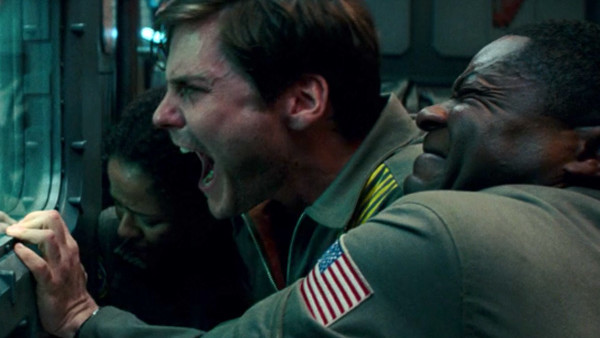The Cloverfield Paradox: What Does The Ending Really Mean?
It's all just a matter of matter.

If you tuned into Super Bowl 52, you would have seen a great game of football, some typically exciting trailers for the likes of Solo: A Star Wars Story and Avengers: Infinity War and another devastatingly clever marketing ploy by Bad Robot that turned a movie that had found difficulty getting distributed previously into one of the must-see movies of the year.
Midway through the game's first half, Bad Robot and Netflix's planned advert aired, revealing the title of the third Cloverfield film (previously known by its production title God Particle and the frankly made-up Cloverfield Station) to be The Cloverfield Paradox and even more stunningly, revealing that it's now available to watch on Netflix. Now that's how you build marketing intrigue.
The trailer's big hook - particularly for Cloverfield franchise fans - was the promise to reveal the "meaning" of Cloverfield, a shared universe thus far defined by its lack of meaning. After two movies purporting to be a shared universe but not in the conventional manner, explanation was needed, and The Cloverfield Paradox offered up a satisfying answer that opens up the possibility of even more movies where pretty much anything goes. That's the joy of establishing your own vague rules.
So what does it all mean, then? Read on for a frank discussion of what happens and the meaning...